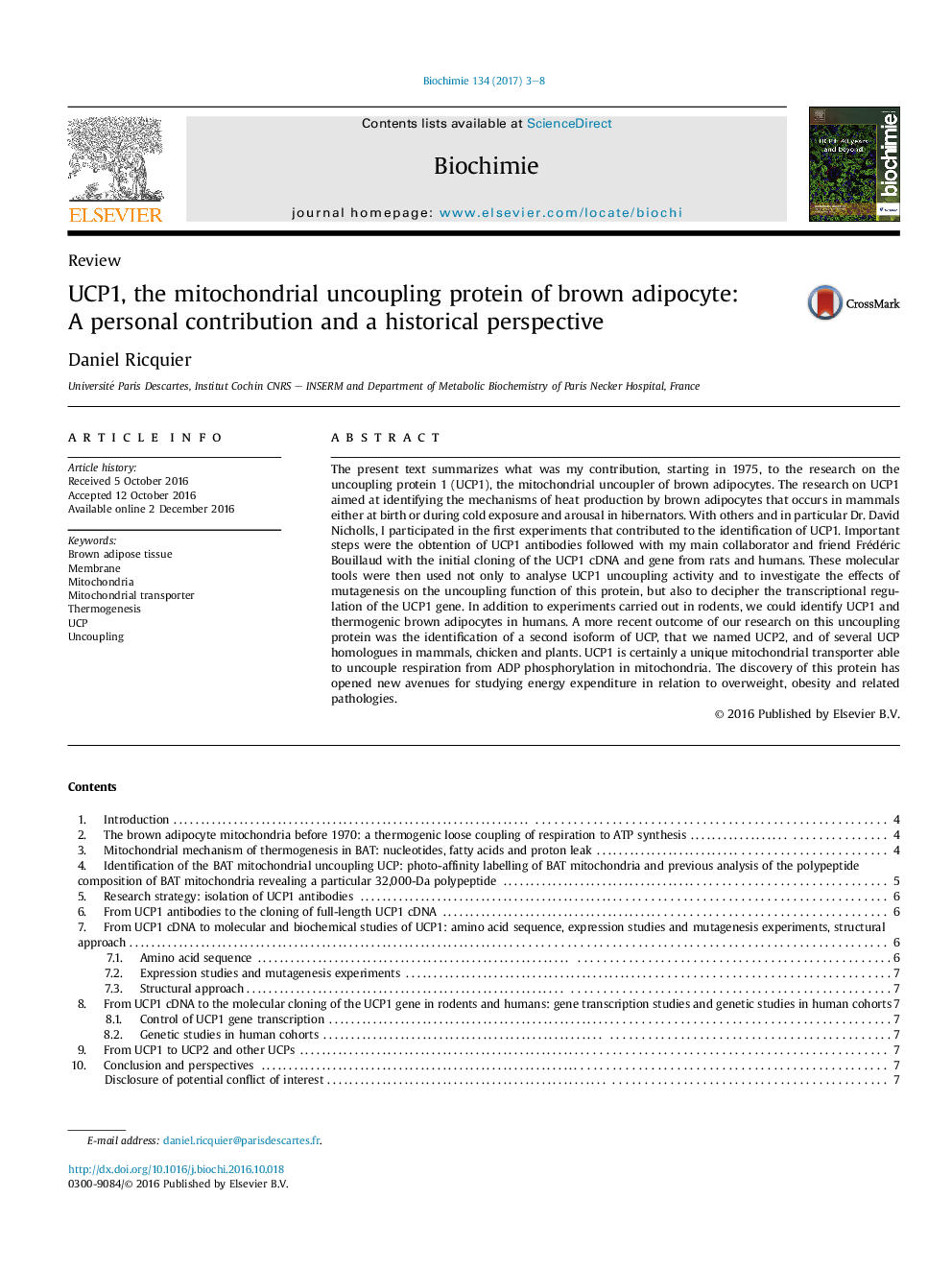| Article ID | Journal | Published Year | Pages | File Type |
|---|---|---|---|---|
| 5509122 | Biochimie | 2017 | 6 Pages |
Abstract
The present text summarizes what was my contribution, starting in 1975, to the research on the uncoupling protein 1 (UCP1), the mitochondrial uncoupler of brown adipocytes. The research on UCP1 aimed at identifying the mechanisms of heat production by brown adipocytes that occurs in mammals either at birth or during cold exposure and arousal in hibernators. With others and in particular Dr. David Nicholls, I participated in the first experiments that contributed to the identification of UCP1. Important steps were the obtention of UCP1 antibodies followed with my main collaborator and friend Frédéric Bouillaud with the initial cloning of the UCP1 cDNA and gene from rats and humans. These molecular tools were then used not only to analyse UCP1 uncoupling activity and to investigate the effects of mutagenesis on the uncoupling function of this protein, but also to decipher the transcriptional regulation of the UCP1 gene. In addition to experiments carried out in rodents, we could identify UCP1 and thermogenic brown adipocytes in humans. A more recent outcome of our research on this uncoupling protein was the identification of a second isoform of UCP, that we named UCP2, and of several UCP homologues in mammals, chicken and plants. UCP1 is certainly a unique mitochondrial transporter able to uncouple respiration from ADP phosphorylation in mitochondria. The discovery of this protein has opened new avenues for studying energy expenditure in relation to overweight, obesity and related pathologies.
Keywords
Related Topics
Life Sciences
Biochemistry, Genetics and Molecular Biology
Biochemistry
Authors
Daniel Ricquier,
